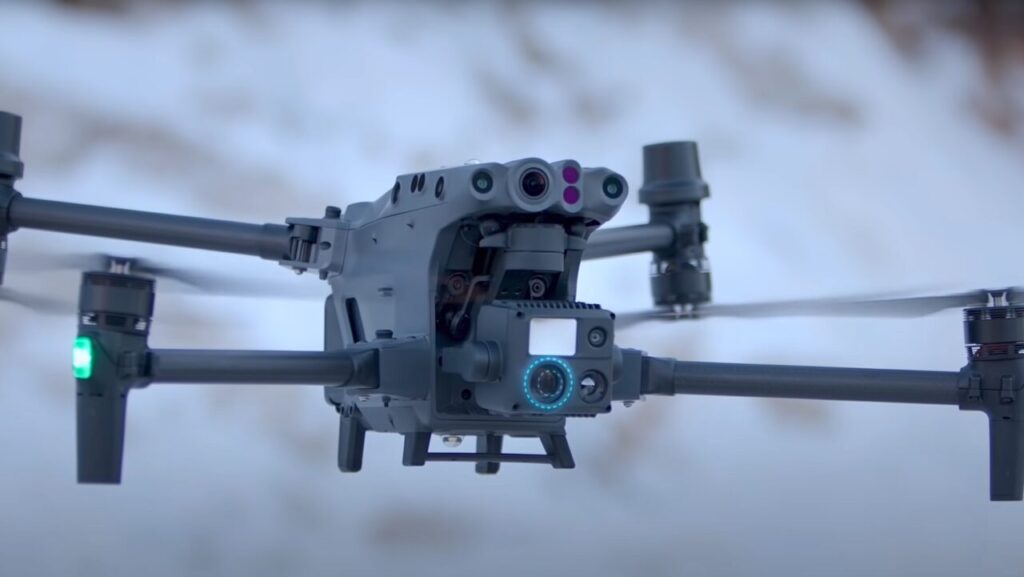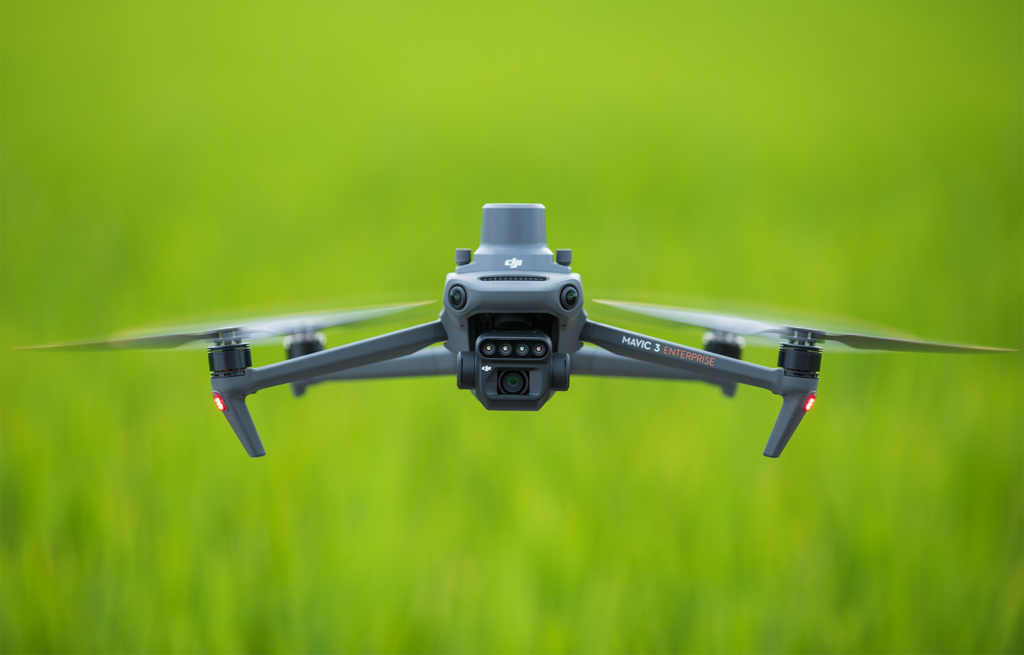Introduction
In recent years, the landscape of unmanned aerial vehicles (UAVs) has undergone a remarkable transformation, particularly in the realm of enterprise drones. Also referred to as unmanned aircraft systems (UAS) or UAVs, these cutting-edge devices have ushered in a new era of innovation across diverse industries and business operations. In stark contrast to their consumer-oriented counterparts, enterprise drones are purposefully engineered to address the unique demands of commercial applications, delivering a heightened level of performance, reliability, and functionality.
What sets enterprise drones apart is their unwavering focus on durability, state-of-the-art technology, and unparalleled precision. These drones boast robust industrial-grade operating systems, resilient materials, and extended battery life, ensuring they can endure the rigors of intensive and prolonged use. Tailored to excel across a spectrum of conditions, from challenging weather scenarios to intricate operational environments, enterprise drones stand as versatile solutions across various sectors.
A defining characteristic of enterprise drones is their specialization for specific industries. For instance, agriculture employs drones equipped with multispectral cameras to monitor crop health, while construction benefits from high-accuracy GPS systems that facilitate precise mapping and surveying. The energy and infrastructure sectors also tap into the potential of enterprise drones for efficient inspection, monitoring, and maintenance tasks, eliminating the hazards and time constraints associated with manual procedures.
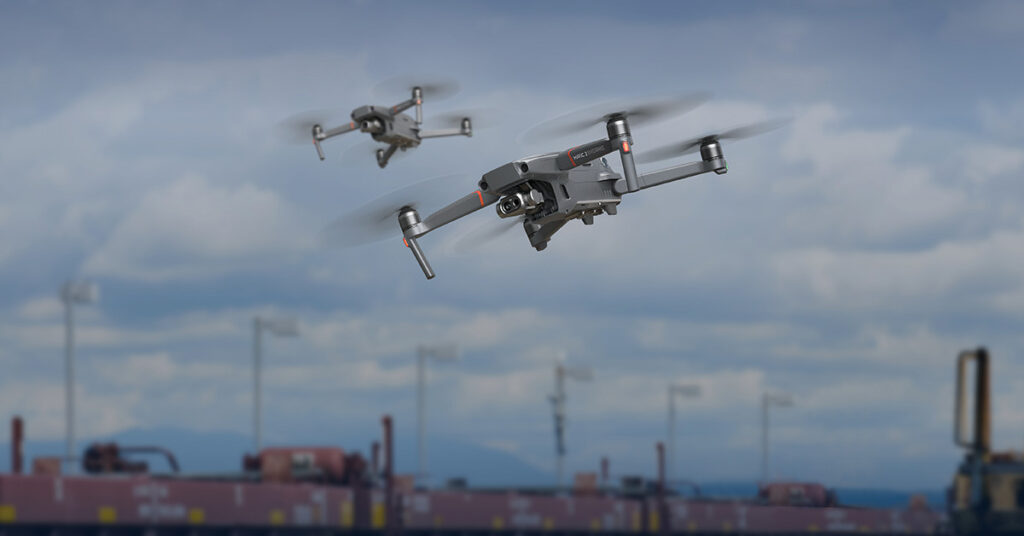
Unlocking the Potential:
Enterprise drones introduce advanced data capture capabilities, encompassing high-resolution imagery, LiDAR scanning, and thermal imaging. These capabilities empower businesses to amass detailed and actionable insights efficiently over expansive areas. Processed through specialized software, the collected data can yield precise maps, 3D models, and a range of analytics. This wealth of information translates to enhanced operational efficiency and well-informed strategic planning.
Simplicity Meets Sophistication:
Ease of operation and a minimal learning curve are among the key advantages of enterprise drones. Manufacturers prioritize user-friendly interfaces, automated flight controls, and robust safety features, enabling professionals from diverse backgrounds to operate these advanced devices without extensive training. As technological progress continues, enterprise drones evolve to incorporate even more sophisticated features. These enhancements encompass improved communication capabilities, extended flight times, and integrated artificial intelligence for real-time data analysis. The integration of AI and machine learning enables these drones to excel in tasks such as object recognition, anomaly detection, and predictive maintenance.
Comparing DJI Mavic 3 Series & DJI Mavic 3 Enterprise
| DJI Mavic 3 Series (M3, M3Cine) | DJI Mavic 3 Enterprise (M3E, M3T) | |
| Image | 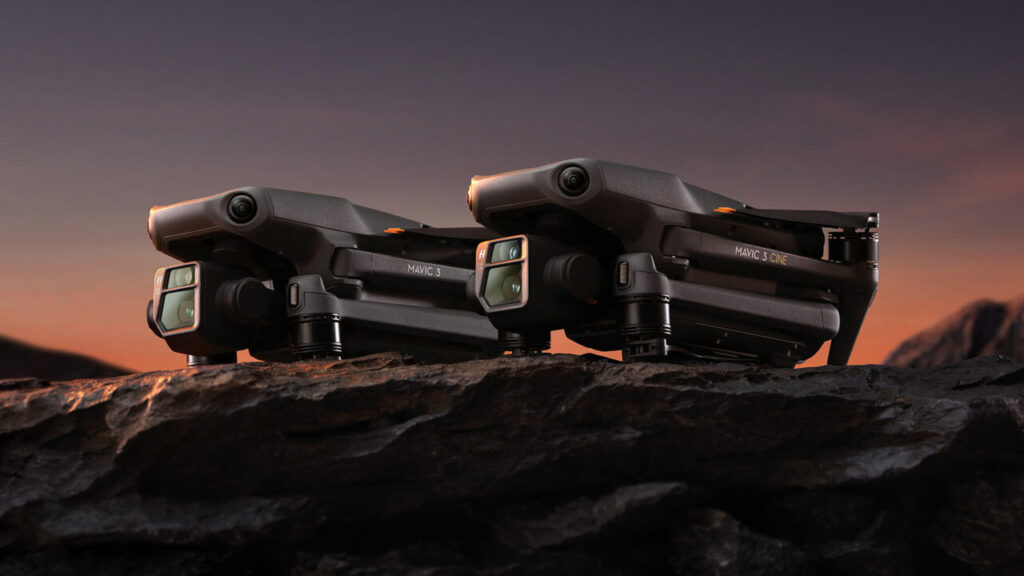 | 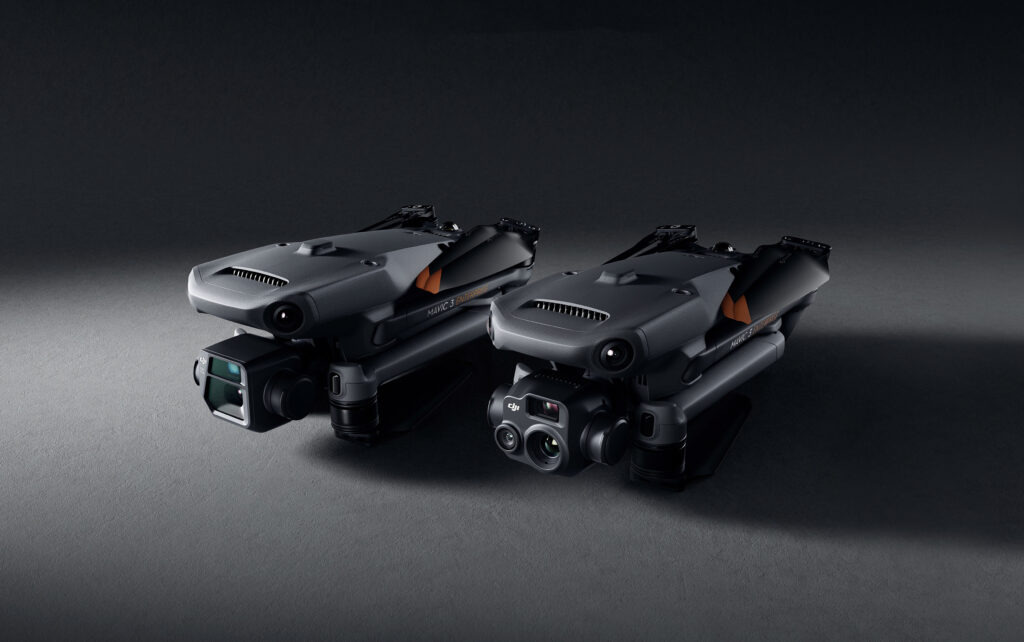 |
| Functions | Cinematography needs | Surveying, Inspection, Search and Rescue (SAR) |
| Specs | Each of them is equipped with a high-quality 4/3 CMOS Hasselblad sensor. However, both the Mavic 3 and Mavic 3 Cine come with an additional telephoto camera to provide improved zoom capabilities. The Mavic 3 Cine goes further by offering expanded storage and the ability to use Apple ProRes, catering to advanced cinematography needs. | M3E: Built for precision surveying and inspection, including optimized mapping camera with short shooting interval, large pixel size, and mechanical shutter; compatibility with RTK module for TimeSync and GCP-free surveying; and route planning M3T: designed for public safety, search and rescue and inspection. Only Mavic 3 drone to have a thermal sensor. The Mavic 3T is compatible with accessories, including loudspeaker, and can be used with DJI FlightHub 2, especially suited for public safety teams to enhance situational awareness and teamwide collaboration |
| Payloads | no | Speaker, Beacon, Spotlight, Thermal Camera (M3T) |
Choosing the correct drone
When purchasing an enterprise UAV, you acquire a sturdier iteration than a consumer model. These enterprise variants are equipped with industrial-grade operating systems, durable batteries, highly precise GPS, as well as additional features like speakers and spotlights. Enterprise UAV products aim to provide more straightforward operations with a reduced learning curve. The progression from the initial drone models primarily available in hobby shops for personal use has been evident. It’s not advisable to procure a drone from a hobby shop for professional mapping or surveying purposes, as such drones cannot deliver the necessary level of data capture. Regrettably, we cannot assist you in achieving the requisite data capture proficiency using a hobbyist drone.
UAVs are tailored based on their intended usage. This implies that when selecting a UAV, your choice will be influenced by general purposes and requirements, ensuring its complete functionality in accordance with your specific needs. Typically, you’d need to consider factors such as desired flight duration, the area to be covered, and the level of video processing you anticipate from the UAV. The costs are relatively modest compared to the performance and versatility you gain. A prime example is our top-selling RTK drone, the DJI Phantom 4 RTK, and DJI M350 RTK. The entire system costs less than $10k. This setup is capable of delivering accurate and consistent outcomes, where we commonly achieve a precision of approximately one-tenth of a foot for elevation measurements between our aerial survey and our ground-based checkpoints.
Cons of Enterprise Drones for Entertainment
Although enterprise drones hold significant promise, their integration necessitates following regulatory guidelines and respecting privacy concerns. It is crucial to adhere to aviation protocols and data privacy legislation to guarantee the ethical and lawful utilization of these devices. These considerations apply even when deploying drones for recreational purposes, as these factors will impose limitations on their usage. Furthermore, apart from their substantial cost, certain enterprise drones may not align with individual preferences, as they were primarily designed for large corporations within specific industries. Industrial or enterprise drones have a certain quality check by the manufacturer to prevent accidents from happening making their equipment to be expensive, and there might be additional costs for spare parts, repairs, and maintenance.
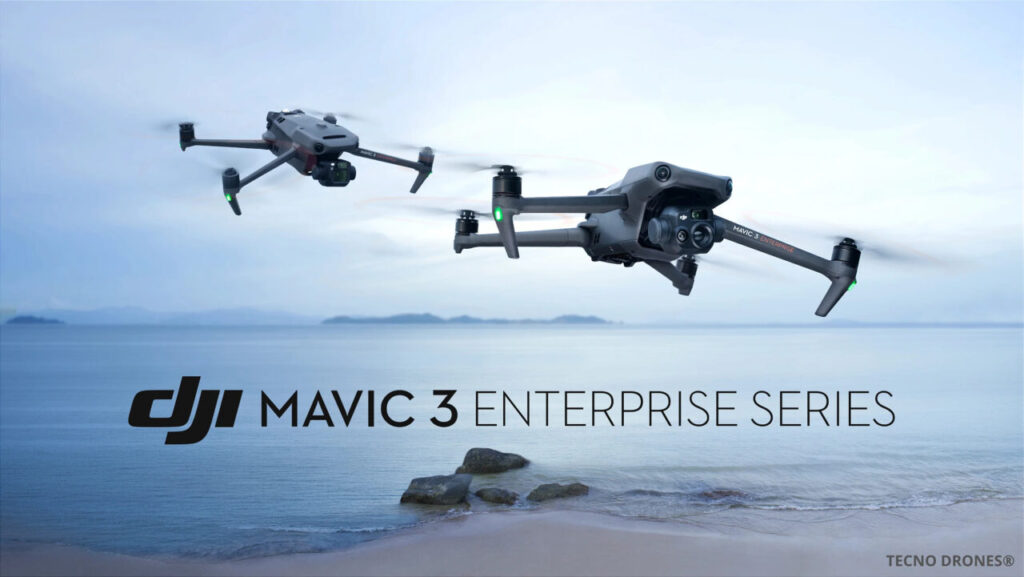
Conclusion
Enterprise drones have redefined the way industries approach tasks ranging from data collection and analysis to inspection and surveillance. With their tailored features, advanced capabilities, and growing ecosystem of applications, these drones continue to shape the landscape of modern businesses, driving innovation, efficiency, and safety across various sectors.

